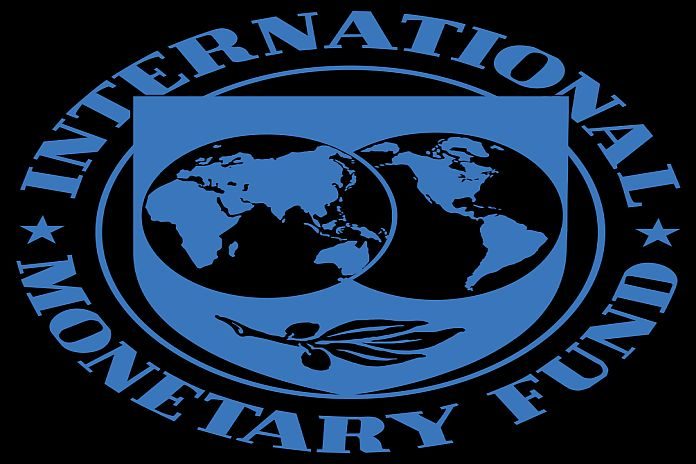By Antoinette M. Sayeh
Deputy Managing Director
Keynote Speech at the Rome Investment Forum 2020
As we gather virtually, the global economy has started to climb back from the depths of the COVID-19 crisis. But the resurgence in infections is delaying our recovery. It is a powerful reminder that we cannot achieve a sustainable recovery anywhere unless we defeat the pandemic everywhere.
Which is why our first priority must be to bring the health crisis under control. The good news is the significant progress on vaccines, which raises our hopes. What we need now is continued international cooperation on the manufacturing, purchase and distribution of vaccines to ensure all countries, including poorer ones, have access to vaccines, treatments and tests.
The IMF estimates that if we share the progress on medical solutions quickly and widely, we can add almost $9 trillion to global income over the next five years. This will have the added benefit of helping to address the income gap between poorer and richer nations at a time when inequality and divergence between countries is set to increase.

Deputy Managing Director
Europe has shown the way in this regard. To encourage the swift development of safe and effective vaccines, the European Commission made advance purchases to finance upfront development and ensure rapid deployment to the EU population. And we welcome the recent announcement that the EU has increased its contribution to COVAX to secure vaccines for low- and middle-income countries. The G20 countries have also indicated that they will strive for affordable and equitable access to drugs, tests and vaccines for people around the world.
But, while a medical solution to the crisis may now be in sight, the economic path ahead remains uncertain and prone to setbacks. In the first phase of the crisis, the world undertook unprecedented and synchronized fiscal and monetary actions that put a floor under the world economy. Now, with the pandemic continuing to exact a heavy health and economic toll, fiscal policy support in some parts of the world is waning; lifelines such as cash transfers to households, job retention support and augmented unemployment benefits have expired or set to expire this month.
This crisis has the potential of imposing lasting scars think about dislocated workers, idled skills, investments on hold, new technology on standby. Given its gravity, our second priority must be to maintain these income lifelines and prevent cascading bankruptcies. The member countries of the EU, in particular, showed strong solidarity and cooperation by taking decisive steps to help households and firms cope with lost revenue and income. The historic Next Generation EU recovery package, if implemented effectively, could provide a meaningful boost to growth across the EU, helping speed recoveries and expand productive capacity. It will also help mitigate long-term scarring and serve as a backstop to the recovery from the crisis.
Of course, we recognize that the pandemic has also battered economies, leaving record levels of debt. This is particularly challenging for low-income countries that already have very limited fiscal space. We must take urgent action to support these countries, giving them access to more grants, concessional loans, and debt relief. Here, too, actions by the G20 countries have been notable. The Debt Service Suspension Initiative has given many low-income countries a temporary cushion. And the recently agreed Common Framework aims to address unsustainable sovereign debt in these countries and ensure broad participation of creditors with fair burden sharing.
As we take these steps to navigate our way out of this unprecedented crisis, we must also put in place policies that not only strengthen our recovery in the short-term, but ensure that we build solid foundations for a more sustainable and inclusive global economy in the years ahead. Which is why, as our third priority, the IMF is calling for a synchronized push for green and digital infrastructure investment, once the pandemic starts to come under control.
Our research has shown that if G20 countries with the largest fiscal space were to simultaneously increase infrastructure spending by half percent of GDP in 2021 and one percent of GDP in the following years and those G20 economies with more constrained fiscal space were to invest only a third of that global GDP would increase by close to 2 percent by 2025. We estimate that they could spend a third less to achieve the same outcome than if they acted alone.
This would be particularly significant for Europe. We know that infrastructure gaps are sizable across Central and Eastern Europe; and even within the group of 15 advanced EU members, there is wide variation in infrastructure. We also know, that for each percentage point of GDP spent on infrastructure in the Central, Eastern and Southeastern Europe countries, long-term output could increase by two to 2.5 percent. The dividend would be even larger if this infrastructure were to improve connectivity across regions and countries, thereby reducing trade costs, as envisaged by the Three Seas Initiative.
But there is another significant benefit of green and digital investments they will help us build the foundation of a 21st-century economy. Take the example of investments in efficient mass transit systems and smart electricity grids. These are key to start tackling the most consequential challenge facing humanity—climate change. We estimate that a combination of green investments and appropriate carbon pricing can put us on a path towards net-zero emissions by mid-century and help create millions of new jobs.
Similarly, we know that the economy of the future will be digital-related sectors have been the biggest winners of the pandemic crisis. We must enable this transition by investing in digital infrastructure—think e-commerce, e-learning and e‑government. At the same time, such investment must also include support for workers as they transition from shrinking to expanding sectors. Increased investment in training, re-skilling and high-quality education will be pivotal to unlocking the potential of the digital economy. More broadly, a more fundamental rethink of how to adapt labor market policies to respond to accelerating automation and to facilitate green and digital transformations may be needed.
The benefits are clear: these investments will invigorate growth. Which is why we support the Next Generation EU’s emphasis on accelerating green and digital transformation. But the overall growth impact of the Next Generation EU plan will also depend on the progress countries make on structural reforms—for instance in health and education systems. The linking of funds to progress on implementing the EU’s country-specific recommendations will help ensure that the recovery effort serves as a catalyst rather than a substitute for necessary reforms.
Let me close by recognizing that these are, of course, also the priorities of the Italian G20 presidency – which focuses on people by tackling inequalities, on the planet by implementing the commitments to the Paris Climate Agreement, and on prosperity by empowering people to fully participate in a digital society.
This is an ambitious agenda. But we have a once-in-a-century opportunity to build forward better. Simply returning to the low-growth and high-inequality economy of the past is no longer an option. Each of us, in our roles, can help shape this recovery and build forward on the basis of this shared vision.
Our success depends on us acting swiftly—and acting together. I hope I can count on your support. Grazie.





